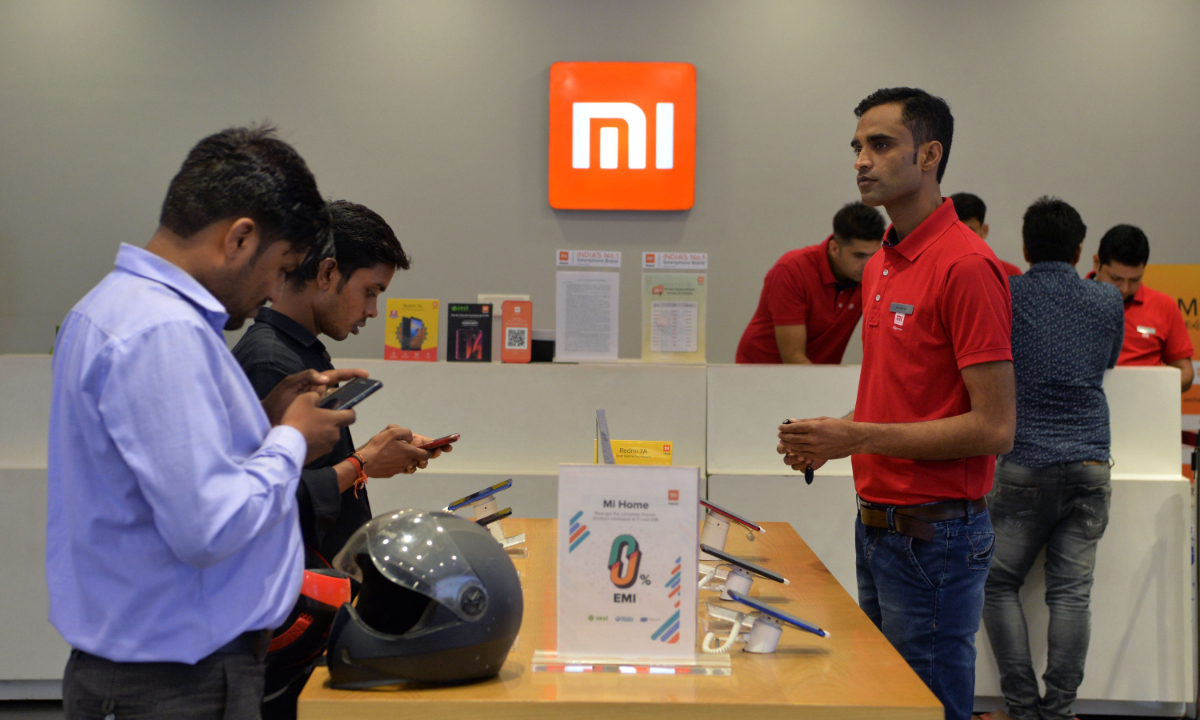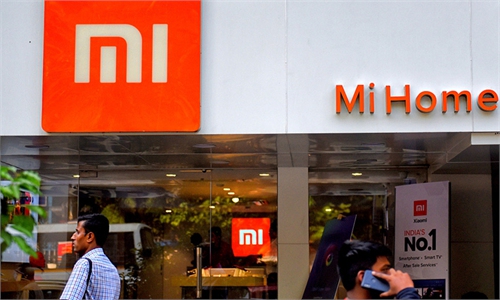
Customers experience Xiaomi products at a local Mi store in Gurgaon, India on August 20, 2019.
India's refusal to offer Chinese firm Xiaomi relief over earlier asset freeze may greatly affect Xiaomi's normal operations in the Indian market and the country's unreasonable suppression will also hurt international investors' confidence in the market, Chinese experts and industry insiders said.
An Indian court refused to provide relief to Xiaomi on Thursday over the $675 million asset freeze in April, requiring the Chinese smartphone maker to firstly provide bank guarantees, after the firm's lawyer expressed the intention to unfreeze the account, Reuters reported on Thursday.
According to Reuters, India declined to lift the freeze on Xiaomi's assets, alleging that the company made illegal remittances to foreign institutions. Xiaomi responded later that all operations in India are in strict compliance with local laws, and payment of such royalties is a legitimate business practice.
Reuters reported that after the company's lawyer sought to end the freeze by seeking relief from the judge on Thursday, the judge required the firm to firstly provide bank guarantees and refused any relief.
The reported move is a signal that Indian authorities clearly want to suppress Xiaomi, partially because some Indian companies also want to enter the mobile phone manufacturing industry, an industry insider told the Global Times on condition of anonymity.
"Indian authorities attempted to help these companies seize market share simply by suppressing Chinese-funded mobile phone companies and Xiaomi, which is currently the largest mobile phone brand in India, has become the main target," the person said.
"India is trying something new by cracking down on Chinese companies on one hand and welcoming Apple to build a factory there on the other. That is to say, the country intends to reduce its reliance on China by suppressing Chinese enterprises and goods, while strengthening economic ties with the US," Qian Feng, director of the research department at the National Strategy Institute at Tsinghua University, told the Global Times on Friday.
Xiaomi has gained a solid popularity among Indian consumers for its high quality and value-for-money products, taking 29 percent market share, ranking first, surpassing Samsung's market share by as much as 12 percent.
Local mobile phone companies in India mainly produce low-cost mobile phones (normally worth less than $150), but they are not cost-effective enough to compete with Xiaomi. Therefore, the decision to suppress Xiaomi this time was made with a clear goal, which is to push out Xiaomi and make room for local brands, the insider said.
Xiaomi has also been put in a situation where it is forced to restructure, make joint ventures with Indian companies and sell equity, the person said.
Qian warned that India's action will affect the country's business reputation in the international market as well as foreign companies' investment and cooperation in India.


